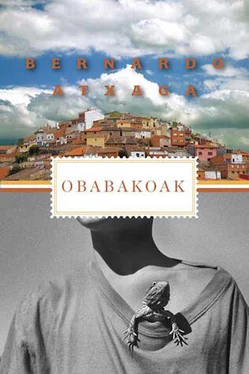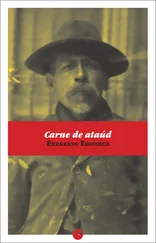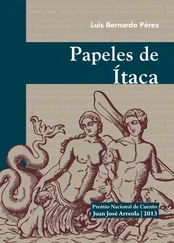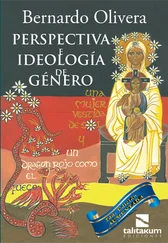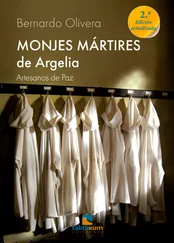Bernardo Atxaga - Obabakoak
Здесь есть возможность читать онлайн «Bernardo Atxaga - Obabakoak» весь текст электронной книги совершенно бесплатно (целиком полную версию без сокращений). В некоторых случаях можно слушать аудио, скачать через торрент в формате fb2 и присутствует краткое содержание. Год выпуска: 2010, Издательство: Graywolf Press, Жанр: Современная проза, на английском языке. Описание произведения, (предисловие) а так же отзывы посетителей доступны на портале библиотеки ЛибКат.
- Название:Obabakoak
- Автор:
- Издательство:Graywolf Press
- Жанр:
- Год:2010
- ISBN:нет данных
- Рейтинг книги:3 / 5. Голосов: 1
-
Избранное:Добавить в избранное
- Отзывы:
-
Ваша оценка:
- 60
- 1
- 2
- 3
- 4
- 5
Obabakoak: краткое содержание, описание и аннотация
Предлагаем к чтению аннотацию, описание, краткое содержание или предисловие (зависит от того, что написал сам автор книги «Obabakoak»). Если вы не нашли необходимую информацию о книге — напишите в комментариях, мы постараемся отыскать её.
Obabakoak
The Observer
Obabakoak — читать онлайн бесплатно полную книгу (весь текст) целиком
Ниже представлен текст книги, разбитый по страницам. Система сохранения места последней прочитанной страницы, позволяет с удобством читать онлайн бесплатно книгу «Obabakoak», без необходимости каждый раз заново искать на чём Вы остановились. Поставьте закладку, и сможете в любой момент перейти на страницу, на которой закончили чтение.
Интервал:
Закладка:
“Luis? Who’s Luis?” I asked in confusion.
He gave me a knowing look and smiled, making it clear that he knew I was only joking. Who was Luis? Why, Luis was Luis, the old priest who’d come to live in Villamediana when he retired.
“You know who I mean,” he’d insist, clapping me on the back. “You’d never have come here in the first place if he hadn’t told you about me.”
That episode gave me much food for thought and, after a while, I came to understand Onofre’s technique for dealing with reality. First, he’d invent a lie, and then, having convinced himself it was true, he’d start spreading it around until, so to speak, it gained general acceptance.
This tactic sometimes had pathetic results. For example, one day he painted two blue window frames on either side of the only aperture, a tiny kitchen window, on the otherwise blank facade of his miserable little house.
“When did you paint them? Last night?” I asked when we met. He pretended he hadn’t heard me and made me feel rather as if I’d just told a child the truth about Father Christmas. From then on, as far as I was concerned, his house had three windows, not one.
On another occasion he showed me a ring, telling me it had been a gift from his son and praising his son’s generosity. I knew, however — indeed he himself had told me so only a month before — that he’d bought it from a traveling salesman.
Very slowly, as I came to understand him better, my opinion of him improved and our friendship ceased to be just another of his lies and became genuine affection. To be honest, his behavior didn’t strike me as so very unusual. All of us, at some time in our lives, feel the need to free ourselves from some painful truth and will resort to anything, especially lies, in order to do so. For the truth should never be given priority over suffering.
If Onofre was distinguished by anything it was his enthusiasm, the sheer energy he put into the carrying out of his stratagems. And, frankly, his personal situation cried out for such deceit. He lived in the most terrible solitude, I only realized just how terrible the day I asked him to lend me an alarm clock.
“I have to go to the city first thing tomorrow morning,” I explained.
“You mean you haven’t got an alarm clock?” he said, giving me an incredulous look, as if unable to believe his ears.
No, I said, I didn’t, I really didn’t own an alarm clock.
He went back into his house, a pensive look on his face, and returned clasping a great silvery contraption. Placing it in my hands, he said, almost tearfully:
“For goodness sake get yourself an alarm clock! It really keeps a chap company!”
A shiver ran through me. I’d just heard an exact definition of solitude from the last person I would have expected it from. What else was solitude if not a situation in which even the ticking of a clock can be companionable?
I thought about the bars in the village and said to myself:
“The lives those places must have saved!”
4. There were only two bars in Villamediana. The best one, which had once been a social club, was on the main square and was furnished with special green baize card tables made from wrought iron and marble in the style prescribed by an earlier age. If one were to believe what the customers and the owners of the bar said, only those on the political left gathered there, those villagers who had sided with the Republicans during the Civil War and the young people in the village who refused to go to mass. On the other hand, and again this was only their opinion, the locals who frequented the other bar lived in servile submission to the village fascists and the priest and were supporters of the most rabidly right-wing politicians.
The other bar bore the unusual name of Nagasaki and was situated on the road leading out of the village. They played cards here too but the tables were made from aluminium and multicolored plastic. Unlike the regulars at the first bar, the customers who came here didn’t classify the village bars according to ideological criteria, for them the factor tipping the balance in favor of one bar or another was purely economic. They considered the bar on the square to be the bar of the rich, of those who owned land and property. Their bar, on the other hand, was the bar of the poor, of the simple laborer, the farmhand.
The customers of each of these bars formed two distinct groups that rarely mixed. In the village as a whole, there couldn’t have been more than ten people who frequented both bars indiscriminately. Some, among them the mayor, went to neither. They avoided taking sides and so could not allow themselves the luxury of seeming to favor one group over the other. After all, you never knew when another civil war might break out. Better safe than sorry.
In general terms, both sides were right. Although this may seem shocking to those unfamiliar with the evolution of fascism, the Nagasaki’s clientele, the simple people of Villamediana, were in favor of a hard-line military government and embraced the kind of nihilism that can as easily fall prey to anarchy as to the ideas of a Mussolini or a Perón. Their vision of the world was imbued with a pessimism underpinned by endless proverbs and popular sayings. The clientele at the café on the square, on the other hand, were members of the highest stratum of village society, whose politics were half-enlightened, half-romantic. Like every militant socialist worth his salt, they claimed to believe in reason, although, as the wife of the bar’s owner happily confided to me one day: The only good dictatorship is a left-wing dictatorship.
I spent more time at the poor man’s bar. I was treated with excessive formality at the other place and their customers always made a tremendous effort to ensure that conversation there maintained a certain level. They were convinced, moreover, that I was a journalist and were constantly plying me with questions about current affairs. What did I think about the upcoming elections? What were my considered views on Spain joining the EEC? I found the role assigned me there distinctly uncomfortable and only went there for my after-lunch coffee. But at night, with the prospect of several hours ahead of me, I always made for the Nagasaki.
The Nagasaki clientele didn’t bother me at all and only spoke to me when it was my round. They had no need of entertainment. All of them — from the owner down — were excellent conversationalists and weavers of interminable tales, mostly about hunting, that almost always ended in arguments. These arguments usually lasted until about three in the morning but, even so, rarely ended in any agreement. One of the regulars, an old shepherd called Agustín, used to take the same way home as me and always bade me good night with the same words:
“See you tomorrow, then. We can carry on where we left off because, you know, there was some real old rubbish being talked at the end there…”
I must confess that, at first, the main topic of conversation at the Nagasaki didn’t attract me. Hunting has always seemed to me a cruel pastime and my habit of giving names to animals — something I’ve done since I was a child — prevents me from ever doing harm to any creature, however repellent. Imagine, for example, that you have a cockroach living in your house and one day it occurs to you to christen that cockroach José María, and then it’s José María this and José María that, and very soon the creature becomes a sort of small, black person, who may turn out to be timid or irritable or even a little conceited. And obviously in that situation you wouldn’t dream of putting poison down around the house. Well, you might consider it as an option but no more often than you would for any other friend.
But the Nagasaki regulars were real hunters. They weren’t the sort of hunters who, like Daudet’s Tartarin, return from the forest and go on and on about their heroic deeds and exploits. Listening to them it was easy to comprehend what the old books say about hunting: that it draws down madness upon the hearts of men and that, basically, all hunters are like the unfortunate abbot who, on hearing his greyhounds barking while he was celebrating Sunday mass, simply dropped what he was doing and rushed off to give chase to the hare, pausing only to collect his rifle and his pack of dogs.
Читать дальшеИнтервал:
Закладка:
Похожие книги на «Obabakoak»
Представляем Вашему вниманию похожие книги на «Obabakoak» списком для выбора. Мы отобрали схожую по названию и смыслу литературу в надежде предоставить читателям больше вариантов отыскать новые, интересные, ещё непрочитанные произведения.
Обсуждение, отзывы о книге «Obabakoak» и просто собственные мнения читателей. Оставьте ваши комментарии, напишите, что Вы думаете о произведении, его смысле или главных героях. Укажите что конкретно понравилось, а что нет, и почему Вы так считаете.
